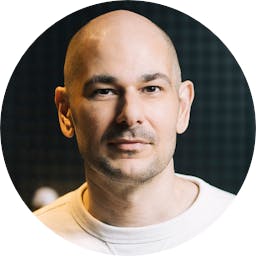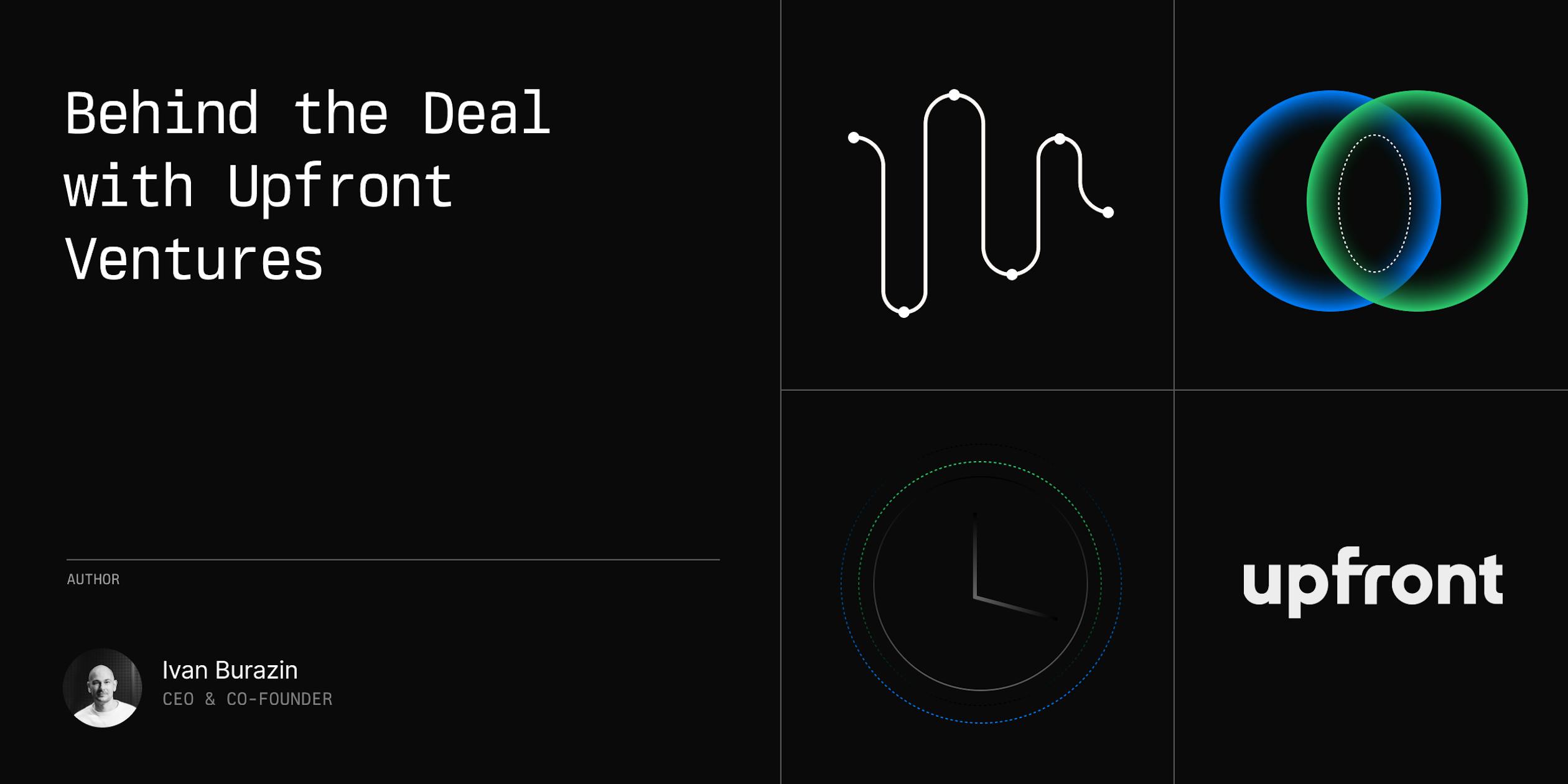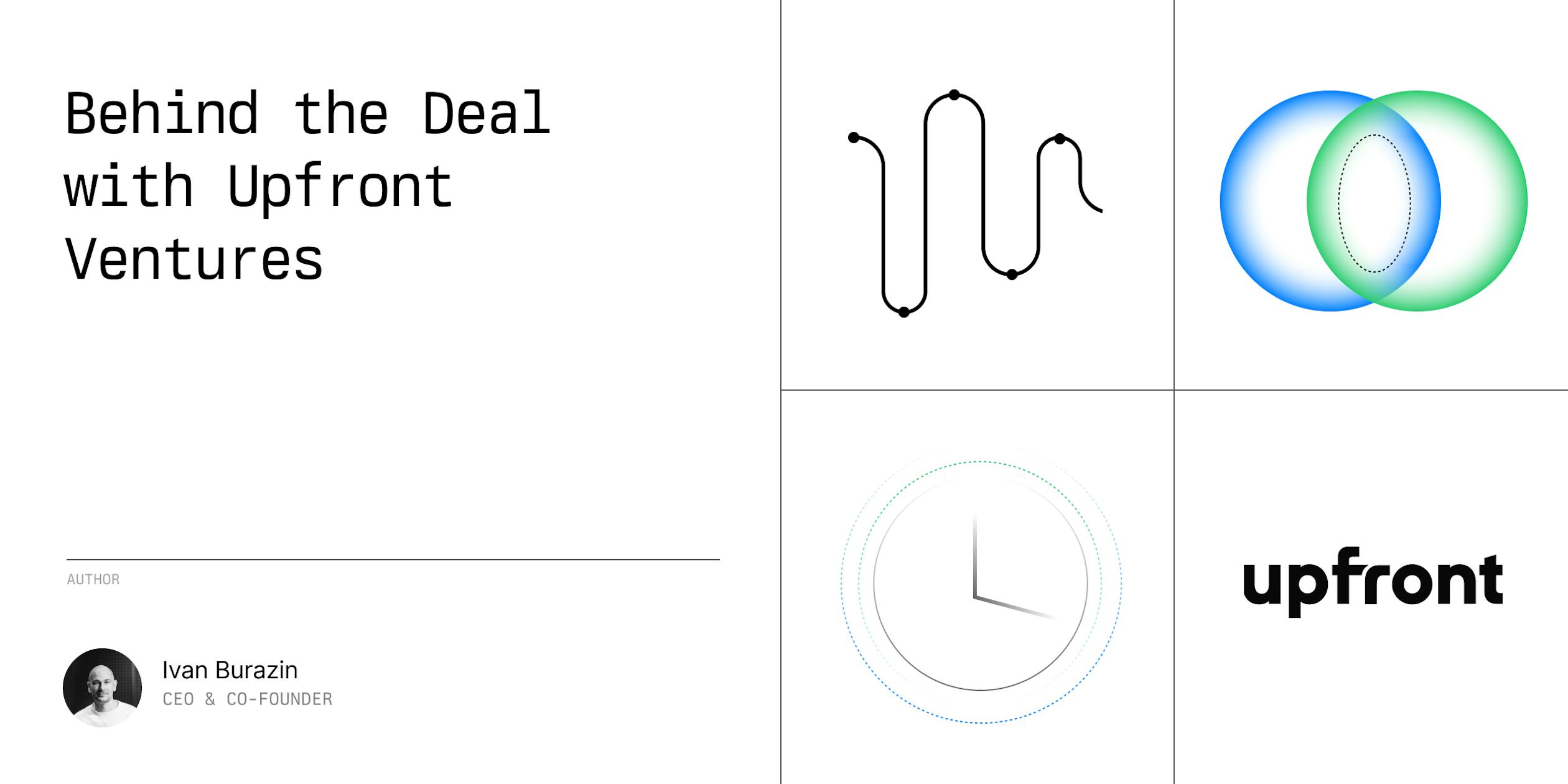Securing major venture capital investments depends on timing, shared vision, and established trust between entrepreneurs and investors. Our recent $5M seed funding round, led by Upfront Ventures, stands as a testament to these principles.
This partnership is significant not just because of the capital involved, but because of the shared commitment to simplifying development environments. Our journey with Upfront Ventures, specifically with Kevin Zhang and Peter Zakin, has been one of alignment, shared passion, and a mutual drive to revolutionize how developers work.
TL;DR
Daytona secured $5M seed funding from Upfront Ventures to simplify development environments.
Key Factors: Strong founder-market fit, timing, and established trust with investors.
Strategic Approach: Engaged early with investors, structured fundraising like a sales process.
Future Goals: Simplify development environments for all developers, backed by Upfront Ventures' expertise.
Finding Common Ground: The Beginning of a Promising Partnership
The story of our collaboration began long before the official signing of the term sheet. I reached out to Peter after seeing his Twitter post that said, "In NYC next week looking to meet devtool founders." Taking the opportunity, I sent him a DM suggesting we grab coffee if he was interested. He quickly replied, and we set up a coffee meeting for the following week.
We met at a boutique New York hotel's cafe, and as soon as we sat down, we hit it off. Our conversation covered a wide range of topics, and we ended up chatting for a bit longer than planned—always a good sign of mutual interest. We agreed to catch up at a later date, as we had just closed our pre-seed funding. About a month later, Peter invited me to a call with Kevin.
Kevin immediately resonated with our vision to simplify and democratize development environments.
The Initial Conversations: Building Trust and Understanding
Our early conversations with Kevin and Peter were marked by in-depth discussions about the future of development environments. We explored the challenges developers face today—such as inconsistent configurations, prolonged onboarding times, and the notorious “works on my machine” problem.
One particularly powerful question we received from Kevin and Peter that really stood out was:
"Why do you have the right to run and to take over this market?"
This pushed us to articulate not just our unique proposition but also our deep-seated passion for solving developers' pains.
With over 15 years of experience in the cloud IDE space, my co-founder Vedran and I have been at the forefront of this industry since its early days. Our previous venture, provided us with invaluable insights into the challenges and opportunities in the space, laying the foundation for Daytona. This experience, combined with our commitment to simplifying developers' lives, gave us the credibility, expertise, and drive to lead the charge in redefining how developers work.
"At the end of the day, much of a company, especially in these early days, is really about the founding team and why they have such a unique vantage point, a unique obsession with trying to solve this problem that they're going after."
Kevin Zhang, Partner at Upfront Ventures
Aligning Visions: The Strategic Fit
Kevin and Peter’s enthusiasm for our mission was palpable. Peter, a member of the investment team, who had joined Upfront after a career marked by founding successful startups, immediately saw the potential in Daytona’s approach. His philosophy and computer science background from Princeton University, combined with his time at Y Combinator, allowed him to appreciate the intricacies of what we were trying to achieve.
Kevin, a Partner at Upfront Ventures with a focus on tech and gaming, on the other hand, brought a strategic edge to our discussions. Having advised on strategy and M&A for technology clients at The Boston Consulting Group, he was adept at identifying signals in the market and understanding the broader implications of our product. His questions and insights helped us refine our pitch and sharpen our focus.
When evaluating potential investments, Upfront Ventures looks for two key things: founder-market fit and timing. They want to understand why the founding team has a unique vantage point and obsession with solving the problem they're going after. They also look for signals that now is the best time to start this company, whether it's from potential customers, open source adoption, or other indicators.
In Daytona's case, our open source approach and early traction were strong signals. Despite being an early-stage product, we were able to show attraction and adoption among individual developers, small teams, and even interest from large enterprises. This, combined with our founding team's deep expertise and passion for the problem, made for a compelling investment thesis.
Sealing the Deal: A Testament to Mutual Trust
Peter and Kevin had been closely following our open source launch, and when Peter saw the tremendous success and traction we gained, he immediately messaged me, saying, "It's time you think about raising." His message stemmed from the trust and relationship we had cultivated over months of meetings and discussions.
From that initial message suggesting we raise funds to the signing of the term sheet, the entire process took just three weeks. It really showed how well we had gotten everything ready, all the work we'd put in over those months of meetings and talks, and how our goals lined up perfectly.
As founders, we were also very strategic in our approach to fundraising. Our pre-seed round was focused on getting angels on board who could provide valuable insights and connections. This included founders of companies like Postman, Honeycomb, and Supabase. Their involvement not only provided validation but also helped us refine our messaging and positioning.
When it came to the seed round, we treated it like a sales process. We had a structured approach, dedicating specific time blocks to meet with investors and then focusing on execution. This allowed us to run an efficient process and ultimately close the round in just three weeks.
One thing that stood out during our fundraising journey was the importance of nurturing relationships with VCs. Many founders make the mistake of only reaching out when they're actively raising. But by consistently engaging with investors, sharing updates, and getting their input, we were able to build strong relationships that paid off when it came time to raise.
This approach aligns with Mark Suster's, Partner at Upfront Ventures, philosophy of investing in lines, not dots. By providing regular updates and demonstrating progress over time, we gave Upfront a clearer picture of our trajectory and potential, making it easier for them to commit to investing in Daytona when the time was right. This strategy not only helped us secure funding but also ensured that we partnered with investors who truly understood and believed in our vision.
Looking Ahead: The Road to Simplifying Development
With the seed funding now secured, we're set to steer Daytona toward exciting destinations. Our mission is clear: to simplify development environments, eliminate inefficiencies, and make this accessible to every developer, whether they are part of a large enterprise or an indie hacker.
Our partnership with Upfront Ventures, backed by the expertise and vision of Kevin and Peter, empowers us to push the boundaries of what’s possible. As we continue this journey, we are excited to build on this foundation, innovate relentlessly, and drive forward the future of development environments.
We're incredibly grateful for the support and partnership of Upfront Ventures, and we can't wait to see where this journey takes us. The future of development is here, and we're excited to be at the forefront of it.
Summary: 7 Key Advices for Founders on Fundraising
Here are some key pieces of advice for founders based on our fundraising experience:
Have a strong founder-market fit. The founders should have a unique vantage point and obsession with solving the problem they are going after. Their background and experience should give them "the right" to take over the market.
Timing matters. A venture investment in the right thesis but wrong timing is the wrong investment. Look for signals that now is the best time to start the company.
Build relationships with investors early, before you need to raise money. Nurture those relationships over time so investors can see your progress and trajectory.
When choosing investors, look for experienced funds/partners who have supported companies like yours before. The right investors provide meaningful help when you need it but don't interfere unnecessarily.
Provide ways for people to easily learn about your company - through your website, GitHub, Slack communities, events, etc. Be transparent.
Think carefully about how to structure your open source project, community and business model. Study other open source leaders for inspiration on what works.
Fundraising is sales - sell your company and vision to investors. Run a structured, efficient fundraising process.
The most important things are founder-market fit, timing, choosing the right investors, and building authentic relationships within your market and community.
Dive Deeper: Watch the Full Video Call with Upfront Ventures
If the story of our journey with Upfront Ventures has piqued your interest, we invite you to watch the full video call where all the nuances of our partnership were discussed. Hear firsthand from Kevin and Peter about their perspectives on the tech landscape and the unique synergy that made our collaboration possible.




